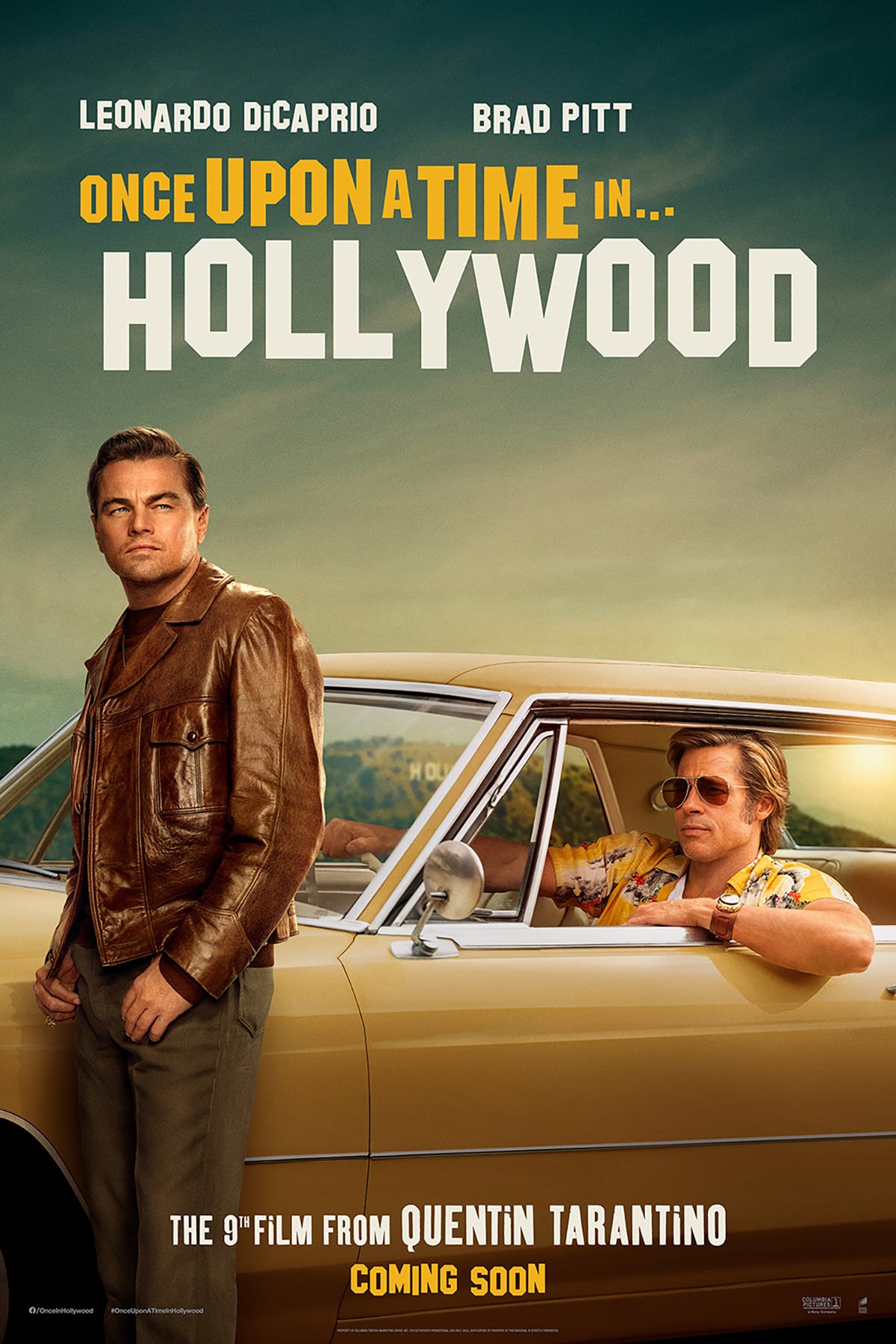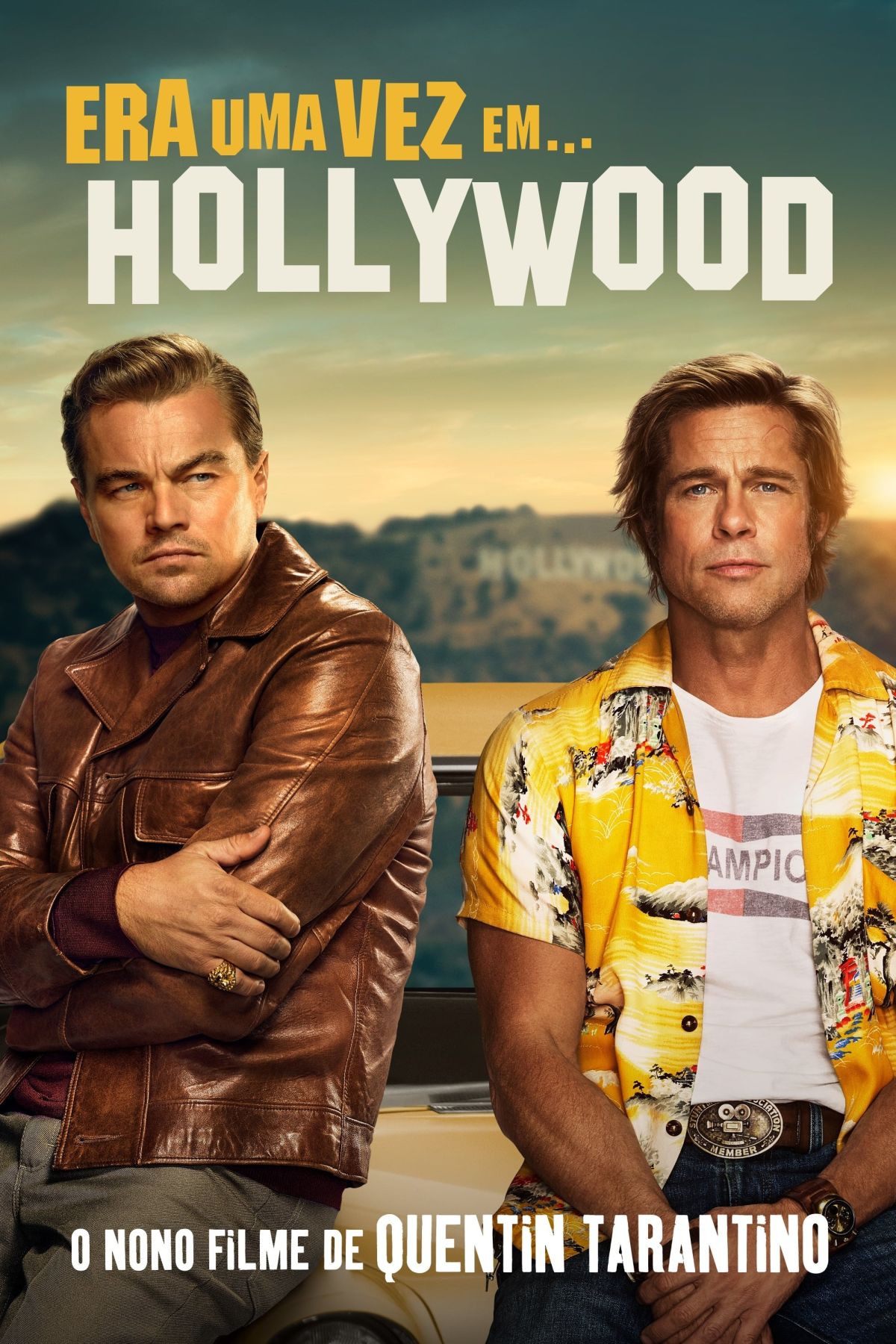Imagine a world where dreams, desires, and the pursuit of Hollywood glory collide in a whirlwind of hope and heartbreak. This is the realm we enter in Quentin Tarantino’s “Once Upon a Time in Hollywood,” a captivating story that unfolds against the backdrop of 1969 Los Angeles. Amidst the glitz and glamour, a young actor named Rick Dalton, played with nuanced tenderness by Leonardo DiCaprio, struggles to keep his career afloat while navigating the tumultuous changes of the era. Rick’s journey is intertwined with that of his loyal stunt double, Cliff Booth, portrayed with rugged charm by Brad Pitt, who faces his own demons and discovers a surprising friendship with a woman named Sharon Tate.

Image: klay-leblanc.blogspot.com
But “Once Upon a Time in Hollywood” is more than just a nostalgic exploration of Hollywood’s golden age; it’s a poignant reflection on the nature of fame, the challenges of friendship, and the enduring power of human connection. Through Tarantino’s signature blend of historical fiction, dark humor, and unexpected plot twists, we witness the evolution of a man grappling with the fragility of his own identity in a world where appearances and success reign supreme. This is the story of Rick Dalton, a man who, like many before him, is swept up in the vortex of Hollywood, a world that promises stardom but often delivers disillusionment.
The Decline of the Old Hollywood: Rick Dalton’s Struggle for Relevance
Rick Dalton, a seasoned television actor, is a relic of a bygone era. He rose to fame in the mid-1950s playing cowboys and soldiers in popular Western series, but the tides of taste have shifted. As the 1960s roar into view, the demand for his brand of rugged masculinity wanes. He finds himself relegated to minor roles in spaghetti Westerns filmed in Europe, a far cry from the A-list status he once enjoyed. Rick grapples with feelings of inadequacy, his confidence chipped away by the constant comparisons to younger, hipper stars who dominate the scene.
The film beautifully captures the anxiety that can accompany a fading career. We see Rick’s frustration, his desperation to regain his footing, and his attempts to adapt to the changing landscape of Hollywood. His struggles resonate deeply, reminding us that even those who once stood on top of the world can feel marginalized and lost in a rapidly evolving industry. Rick’s journey serves as a stark reminder of the fickleness of fame and the importance of finding meaning beyond the superficiality of Hollywood stardom.
The Steadfast Friendship: Cliff Booth and Sharon Tate
While Rick grapples with his waning career, Cliff Booth, his loyal friend and stunt double, navigates his own complexities. Cliff is a man of few words, a stoic figure who embodies the tough-guy archetype. He is fiercely protective of Rick, serving as a constant presence in his life, a rock in a sea of uncertainty. Yet, Cliff carries his own baggage, a shadow from his past that lingers like an unwelcome guest.
Amidst the chaos surrounding Rick’s struggles, an unexpected friendship blooms between Cliff and Sharon Tate, the young and vivacious actress who is Rick’s neighbor. Their connection, forged through shared experiences and genuine kindness, forms a heartwarming counterpoint to the film’s darker narrative. Sharon, played with grace and sensitivity by Margot Robbie, embodies innocence and optimism, a stark contrast to the growing darkness that pervades the world around her.
The Echoes of History: The Manson Family and a Night of Horror
Tarantino masterfully weaves the true story of the Manson Family, a cult led by Charles Manson, into the fabric of his fictional narrative. The Manson Family, known for their erratic behavior and violent crimes, become a looming threat, their presence overshadowing the tranquility of Rick and Cliff’s lives. The specter of the Family’s infamous crimes, particularly the murder of Sharon Tate, hangs over the film, casting a chilling reminder of the darkness that can fester beneath the surface of society.
The film doesn’t shy away from depicting the brutality of the Manson Family’s actions, but it also delves into the historical context that shaped their twisted ideology. We see the desperation and disillusionment of the Family’s members, drawn to Manson’s charismatic yet dangerous pronouncements. Tarantino doesn’t condone their crimes, but he offers a glimpse into the minds of those who committed them, highlighting the complex interplay of social unrest, personal trauma, and misguided ideals that fueled their destructive behavior.

Image: www.cinemagia.ro
A Twist of Fate and a Moment of Redemption
“Once Upon a Time in Hollywood” is a film that thrives on unexpected twists and turns. Just when we think we know where the story is headed, Tarantino throws us a curveball and subverts our expectations. He masterfully manipulates our understanding of time and space, blending historical events with fictional scenarios that challenge our assumptions about the past. The film’s climax, a thrilling and violent confrontation that defies the established narrative of the Manson Family murders, becomes a cathartic moment of unexpected redemption for Rick and a testament to the enduring power of human spirit against the tide of darkness.
The film’s ending is ambiguous, leaving us with a lingering sense of unease and a sense of the bittersweet nature of life. It asks us to confront the darkness within ourselves and the world around us, but it also reminds us that even in the face of overwhelming odds, we can choose hope, resilience, and the pursuit of our own redemption.
Once Upon A Time In Hollywood Charlie
The Power of Storytelling and the Search for Meaning
“Once Upon a Time in Hollywood” is more than just a historical drama; it’s a profound meditation on the importance of storytelling and the search for meaning in a world that can often feel chaotic and uncertain. Through the lens of Rick Dalton, we witness the power of narrative to shape our perceptions of ourselves and the world around us. Rick’s struggles to find his place in Hollywood mirror our own internal struggles to define ourselves and find our purpose in life.
Tarantino’s film reminds us that even in the face of despair, we can find solace and inspiration in the stories we tell ourselves and the connections we forge with others. “Once Upon a Time in Hollywood” is a testament to the enduring power of human connection, a celebration of friendship, and a reminder that even in the darkest of times, a flicker of hope can ignite within our hearts, reminding us that the stories we write, whether through our lives or through the pages of a screenplay, can illuminate the path towards meaning and redemption.
Beyond the glamorous facade of Hollywood, “Once Upon a Time in Hollywood” reveals the raw and authentic struggles of individuals grappling with the complexities of life, love, loss, and the pursuit of dreams. It’s a film that stays with you long after the credits roll, prompting reflection on our own journeys and reminding us that even in a world where appearances can be deceiving, the human spirit, like a flickering flame in the darkness, can find its own unique way to shine.






